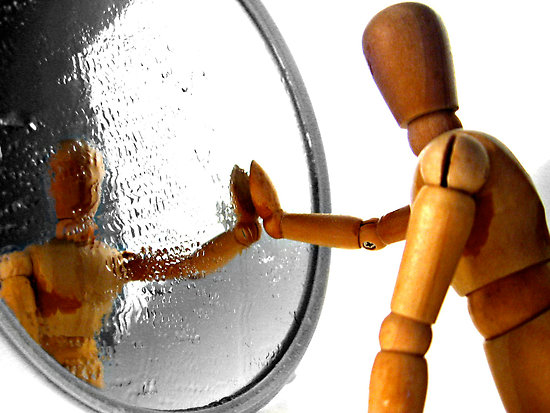As human beings, we often find ourselves getting caught up in the lives of others. We scroll through social media, compare ourselves to our peers, and seek validation from external sources. But what if we told you that the key to personal growth and development lies not in reading other people, but in reading ourselves? Self-awareness and self-reflection are critical components of personal growth, and prioritizing our understanding of ourselves can lead to greater empathy, compassion, and effectiveness in our relationships with others.
What is Self-Reflection?
Self-reflection is the act of examining and evaluating one’s thoughts, emotions, and behaviors. It involves taking a step back from our daily lives and observing ourselves objectively. Self-reflection allows us to gain insight into our own values, beliefs, and motivations, and to identify areas where we need to improve.

The Benefits of Self-Reflection
Self-reflection has numerous benefits for personal growth and development. It allows us to:
- Gain Clarity: When we reflect on our thoughts, feelings, and behaviors, we gain a deeper understanding of ourselves. We can identify our strengths, weaknesses, and areas for improvement, which can help us set goals and make better decisions.
- Improve Relationships: Self-reflection helps us become more empathetic and compassionate towards others. By understanding our own thoughts and emotions, we can better understand the thoughts and emotions of those around us. This can lead to stronger, more meaningful relationships.
- Manage Stress: Self-reflection can help us manage stress by providing a way to process our emotions and thoughts. When we reflect on our experiences, we can identify patterns and triggers that contribute to stress and take steps to reduce their impact.
- Increase Resilience: By reflecting on our experiences, we can develop greater resilience. We can learn from our mistakes and setbacks, and use that knowledge to bounce back stronger and more resilient than before.

How to Practice Self-Reflection
Self-reflection is a skill that can be developed with practice. Here are some tips to help you get started:
- Set Aside Time: Schedule regular time for self-reflection. This could be a few minutes each day or a longer period once a week.
- Create a Safe Space: Find a quiet, comfortable space where you can reflect without distractions.
- Journal: Writing down your thoughts and feelings can help you process them more effectively.
- Ask Questions: Use questions to guide your reflection. Some questions to consider include: What did I do well today? What could I have done better? What did I learn?
- Be Honest: Self-reflection requires honesty and vulnerability. Be honest with yourself about your thoughts, feelings, and behaviors.
Reading Yourself vs. Reading Others
Reading other people can be entertaining, but it does not necessarily lead to personal growth and development. In fact, comparing ourselves to others can be detrimental to our self-esteem and confidence. By prioritizing our own understanding of ourselves, we can become more self-aware and compassionate, which can lead to stronger relationships and greater personal success.






